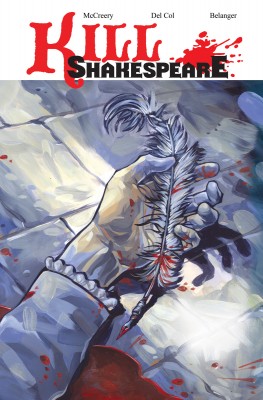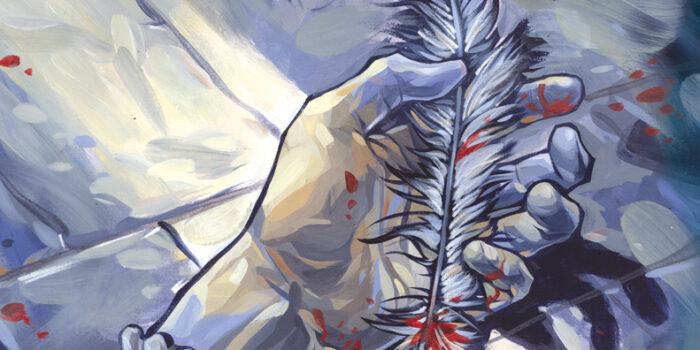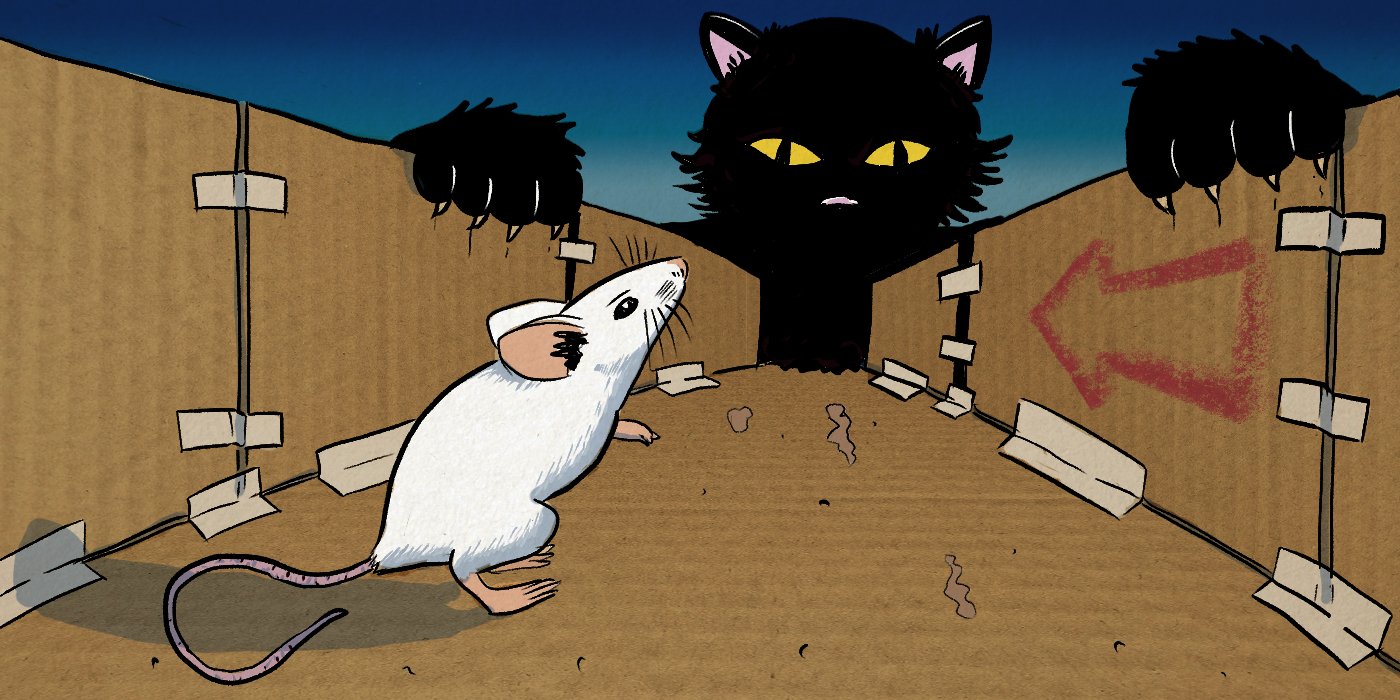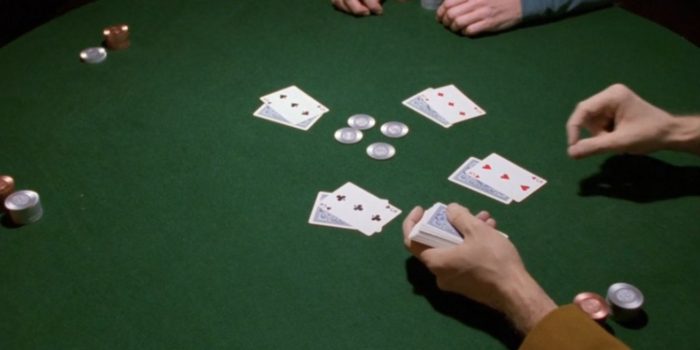2010, IDW
Story: Conor McCreery, Anthony Del Col
Art: Andy Belanger
Colours: Ian Herring
Could any other scribe warrant such a passionate yet divisive response upon the mere utterance of his surname? For every uncultured individual who sees Shakespeare’s plays as the crux of a painful childhood, there seems to be an academically inclined counterpart who views the Bard with blind reverence. But both parties often fail to appreciate that Shakespeare’s plays were intended to appeal to the masses; bawdy, bloody and witty stories rife with mythological allusions. Not at all unlike comic books, then…
Kill Shakespeare, an epic fantasy which drags recognisable entities such as Hamlet, Richard III and Othello into one wonderfully ridiculous plotline, is likely to garner a similarly discordant reception. In this fun romp Shakespeare is essentially a God, and dejected protagonist Hamlet is the prophesised Shadow King, manipulated by Richard III into locating this deity and stealing his quill. The characters themselves generally resemble their original incarnations in name only; Juliet Capulet is now a warrior princess of sorts, while Lady Macbeth is a mystical enchantress à la Morgan le Fay.

Writers Conor McCreery and Anthony Del Col pull off two rather magnificent feats here. Firstly, they manage to introduce each character in a manner so accessible that readers without the slightest knowledge of Shakespeare won’t feel bewildered or excluded in the slightest. Secondly, the book’s dialogue successfully conjures its sources without compromising a contemporary readership; something many other comic writers generally fail at to cringe-inducing effect. The result is an immensely readable book that’s far more cohesive than one might initially expect.
Andy Belanger also manages a fine balancing act of the old and the new. His designs are distinctive yet plausible, and treated to some striking colour work by Ian Herring. While the fantasy elements are generally kept to a minimum, Belanger is given free rein in the book’s numerous dream sequences and each is one uniquely brilliant.
A while back I reviewed Issue 1 of Kill Shakespeare and gave it an uncharacteristically scathing write up, criticising the premier instalment for taking itself far too seriously. And I still stand by that shoddily written critique, though the introduction of the wonderfully vulgar Falstaff does knead some much needed humour into the mix. However, several issues into Kill Shakespeare I found myself able to enjoy the series simply for what it is; a finely written fantasy tale, crammed with action scenes so impeccably paced that the scholar inside me can’t help but be swept along for the ride.
8/10









Leave a Reply